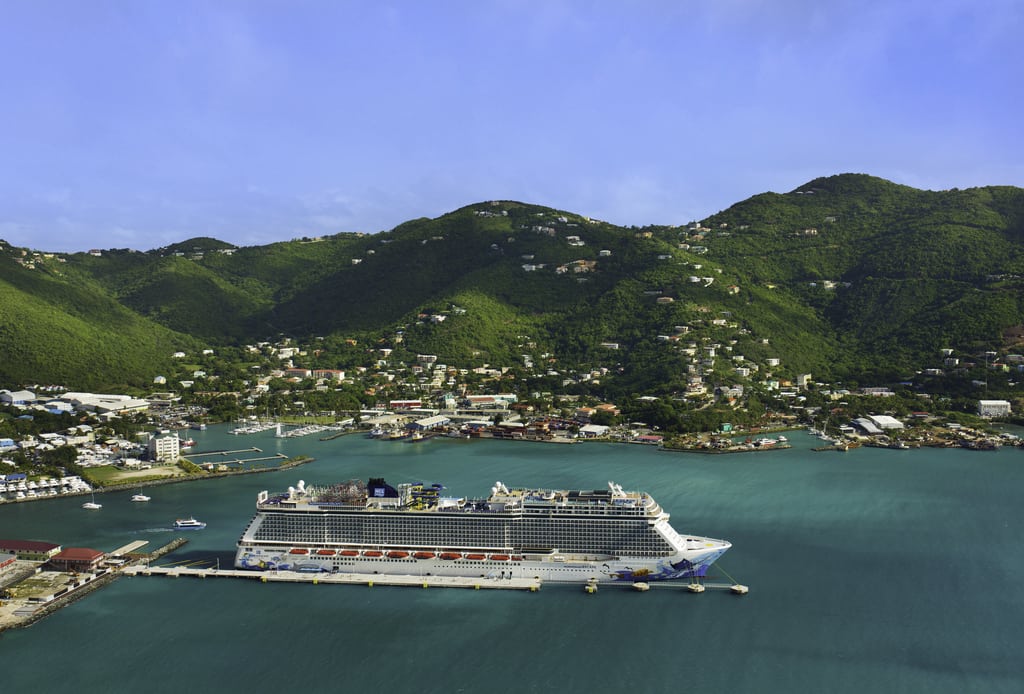Skift Take
Cruise line executives trumpet the benefits of global deployment: When one part of the world is having trouble, other regions tend to improve. Unfortunately for Norwegian Cruise Line Holdings, the biggest markets are struggling at the same time.
There has been no calm port in the storm for Norwegian Cruise Line Holdings this spring and summer.
Repeated terror attacks and political instability in Europe kept North Americans — the company’s prime source market — away from Mediterranean sailings. And while the Caribbean was still a popular option, cruises there did not command prices as high as the company had anticipated.
“Our expectations were outsized and they didn’t materialize,” CEO Frank Del Rio told analysts during a second-quarter earnings call August 9.
The details came as the Miami-based cruise company — which includes Norwegian Cruise Line, upscale Oceania Cruises and luxury Regent Seven Seas Cruises — reported that revenues rose but profits fell. Revenues increased 9.3 percent to $1.2 billion while profits dropped 8.4 percent year-over-year to $145.2 million.
More concerning was that Norwegian lowered its outlook for the year and said it was no longer confident it could reach a target of $5 adjusted earnings per share in 2017.
Shares fell nearly 12 percent to $37.91 by mid-afternoon.
“Today is not a happy day here at Norwegian headquarters,” Del Rio said.
Del Rio and chief financial officer Wendy Beck said four factors forced the revision: weak demand from North Americans for European cruises, an issue that also weighed on results last quarter; the effect of weaker foreign currencies, including the pound, after the British vote to leave the European Union; lower-than-expected prices in the Caribbean, where more ships are based this year, and the company’s long-held strategy of adding value rather than slashing prices in order to fill ships.
Without those discounts, occupancy can — and did — suffer. Del Rio acknowledged that cutting prices could boost revenue, but that the short-term gains would not be worthwhile in the long run.
“However, it would come at a high cost of eroding hard-fought long-term pricing gains, which are infinitely more difficult to regain than they are to lose and which would have a larger negative impact in future quarters,” he said.
In Europe, the majority of Norwegian passengers who take cruises come from North America. Those travelers have been reluctant to cross the Atlantic to sail after a rash of security and political incidents including the attacks in Brussels, Nice, and Istanbul, and the attempted coup in Turkey. In the past, Del Rio said, bookings would slow in the immediate aftermath of an attack or regional flare-up but return to normal after a few weeks.
“There’s been no healing process in this environment because it’s one after the other after the other after the other,” he said. “When will it stop? Anyone’s guess. We’re assuming that whatever environment we have today continues into the booking period into 2017.”
Rather than fill those ships with Americans, Norwegian has turned to European travelers, who want to pay less for trips, book cheaper types of rooms and spend less once they’re on board.
“While we have been positive in the past regarding Norwegian’s heavy sourcing from the U.S., it has backfired on the company in the recent period,” Morningstar analyst Jaime Katz said in a note to investors.
Alaska, Bermuda, and Hawaii have all been bright spots for Norwegian. But while competitors have said they are seeing strong business in the Caribbean, Norwegian Cruise Line just couldn’t get customers to spend as much as expected. Prices were up in the region compared to the second quarter of last year, just not as much as the company anticipated.
The cruise line’s two newest ships, Getaway and Escape, were both based in Miami during the typically slow Caribbean summer season — a deployment plan that will change next year when Getaway goes to the Baltic in the middle of the second quarter. The company will launch its first ship in China in 2017.
Del Rio said South America, where demand has been soft, appeared to be getting the brunt of any impact from the Zika virus so far.
But unlike other cruise line executives, who have largely brushed off concerns about the mosquito-borne illness, Del Rio talked about the potential damage Zika-related health concerns could have.
“The unknown is always how many bookings would have taken place that haven’t taken place because someone was concerned about Zika,” he said. “Every event is either going to be a positive, a negative, or a neutral. No one would dare make an argument that Zika is a positive. It’s difficult to make an argument that it’s even neutral. If it’s a negative, how bad a negative is it? I don’t know, I can’t quantify it.”
The Daily Newsletter
Our daily coverage of the global travel industry. Written by editors and analysts from across Skift’s brands.
Have a confidential tip for Skift? Get in touch
Tags: cruises, earnings, ncl, norwegian cruise line holdings
Photo credit: Norwegian Escape is shown in Tortola. Norwegian Cruise Line Holdings on Tuesday lowered its outlook due to lower demand in Europe and excess capacity in the Caribbean. Danny Lehman / Norwegian Cruise Line
